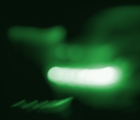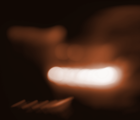
Legendary lifelong bluesman Al Lerman looks back, moves forward
Author: Seamus Cowan
Published by: The Review-Mirror
Seamus Cowan: Since I have known you, it seems like it’s always been something funky about you. Of course, I mean that in the most endearing way! What kind of influences did you have earlier on that made you get into these funky sounds you emanate?
Al Lerman: I was introduced to blues at an early age, around 11 or 12. My eldest sister's boyfriend, who she eventually married, was taking me to coffee houses where I heard acts like Sonny Terry & Brownie McGhee. I was exposed to that early delta-style blues first. That music is incredibly funky! Then, in the course of only a few years, I saw Muddy Waters, Paul Butterfield, Mississippi Fred McDowell, Bukkha White, John Hammond, Jimmy Reed, Buddy Guy & Junior Wells, James Cotton, Willie Dixon, BB King, and so many more… a pretty wide range of blues styles. I got into all kinds of blues and learned about harmonica players Little Walter, Sonny Boy Williamson and Walter Horton, all pioneering musicians that helped define the Chicago blues genre. While blues was my go to music, I was also listening to stuff on FM radio and was into the Stones, The Band, Little Feat, The Beatles, Chuck Berry, Little Richard etc. By seventeen, I was playing in working blues bands. After a few years, I was soon hired into a band with slightly older musicians and they turned me onto R&B, funk, and the music from New Orleans. I was taking jazz records out of the library and discovering that a lot of sax players had a blues feel in their playing and I gravitated towards them. I suppose over the years I've been influenced by all those genres, so it is no surprise that there is a funky feel in my approach to music.
Q: You had great success playing in the immortal blues soul outfit Fathead. It seems like that was one of the pinnacles of your career, musically. What was it about Fathead as a band that made it so special?
Al: I had already been gigging for about twenty years when I became disenchanted with the band I was currently in. That's when I put Fathead together in 1992. I began to book random gigs and started hiring different musicians around Toronto that I either knew or admired. We would just jam through songs we knew. One night, the combination of musicians that happened to be on stage were the future players in Fathead. It just felt so good playing together that I kept hiring the same guys for all the gigs. They were all great players and good people. We started rehearsing regularly and working on songs we'd written. We had a great singer in the late John Mays, and top-drawer musicians in Bob "Omar" Tunnoch (bass), Teddy Leonard (guitar) and originally Mike Fitzpatrick on drums. Over the years, a few players went elsewhere and were replaced, but John, Omar and I remained a constant for 25 years. Fathead was more than a band; it was like family. I watched their kids grow up into young adults. We won a couple Junos and played the top festivals. I look back at the portion of my career with much fondness and pride.
Q: I love how you play so many instruments and sing as well! What instrument did you start on and how did you find the confidence to move on to playing solo as a guitar player, singer, harmonica player?
Al: I think I wanted a guitar as soon as I saw the Beatles on Ed Sullivan. In my teeny bopper mind, I thought that looked like a good job to have. I was ten at the time and I took lessons for about two weeks. When I held the guitar as a left-handed person would naturally do, I was told that it was wrong. My teacher said I needed to turn the guitar around and play right handed. It felt very awkward and I quickly lost interest and quit. In my early teens however, I revisited the guitar, but this time, switched the strings around lefty-style. I was also given a Marine Band harmonica and I immediately took to that like a duck to water. I played that all the time, night and day. That became my main instrument, but I still played some guitar. Around that time, I was trying to adapt some saxophone licks that I'd heard on records to the harmonica. My electric guitar was stolen from the band van one night and rather than replace it, I bought a saxophone instead and learned to play it. So, for a long while, I played harmonica and sax in bands. Needless to say, I always kept an old acoustic guitar at home which I would use for writing songs. When I decided I would want to live in the countryside, I started booking gigs as a solo acoustic artist because I knew there would be more opportunities to play solo out here. (I moved just outside of Havelock in 2010.) I eventually sold my sax and concentrated on playing acoustic guitar with the harp on a rack. I had been a decent harmony singer in previous bands, so it wasn't too much of a stretch to start singing songs on my own. It seems now I've come around full circle back to those first coffeehouse concerts I'd seen with Sonny Terry & Brownie McGhee. I find I can easily present my own compositions, peppered with a lifetime of musical influences in that pared down, solo acoustic format. At seventy years old and living out in the woods, this seems to fit my lifestyle perfectly.
Q: It seems like you have so many influences from so many different places but if you could go back in time and play with any great musician, who would it be?
Al: I'm so lucky that I had opportunities to sit in with some of my blues heroes like Muddy Waters when I was still a young musician. It was a real learning experience for me because when he played a slow blues, it was incredibly sloooooooooow! Man, I must have played every lick I knew in the first four bars of the song and quickly realized I needed to change my approach. It was an instant epiphany; it's not just the notes you play, but the spaces in between that really make music become musical, and say something that others can feel. I needed to take my time. I managed to quickly get it together by the next verse of the song. When the song ended and I went to step down, Muddy was very encouraging and asked me to play some more. He told me that I played good. Those words of encouragement instilled me with confidence and made me want to get better. Now that I am a much more experienced player, I would love the chance to go back in time and sit in with Muddy again!
Q: Your new record sounds amazing! Continuing to create, seems to be keeping you going and performing. Did the creative juices keep the gas in the tank?
Al: Absolutely! I had a bunch of newly written songs that were fairly straight ahead and I sent all the musicians rough demos I'd made. We recorded at Jimmy Bowskill's "Ganaraska Recording Company" near Cobourg. It is a centuries old farmhouse/studio that offers a very comfortable and laid back atmosphere. It possesses a bit of what I perceive to be a "Big Pink" vibe, like The Band's legendary house in upstate NY. My wife was driving down each day with a carload of fantastic home cooking and refreshments, so we never had to leave the studio. I had asked Alec Fraser to produce and play upright bass. We've known each other for decades and had been involved in several recording projects together. We were on the same page right from the get-go with how to approach this record, and the sessions came together very easily. Jimmy played mandolin, guitar and fiddle and Chuck Keeping, who was in Fathead for a couple of years, was on drums. He's got a great groove. Steve O'Connor from the Jim Cuddy Band was suggested by Jimmy to round things out on keys for a couple of tunes. He fit right in as if I'd known him for years. We played live off the floor over two days and nights. It was an insanely fun session and the spontaneous energy we were after comes across on this record. We added only a few overdubs one final session. I called the album "Country-Fried Blues" and it is available off my site and also streams on most major platforms. I look forward to playing these songs and more when I play the Cove on Thursday, September 5! Posted: Aug 28, 2024











